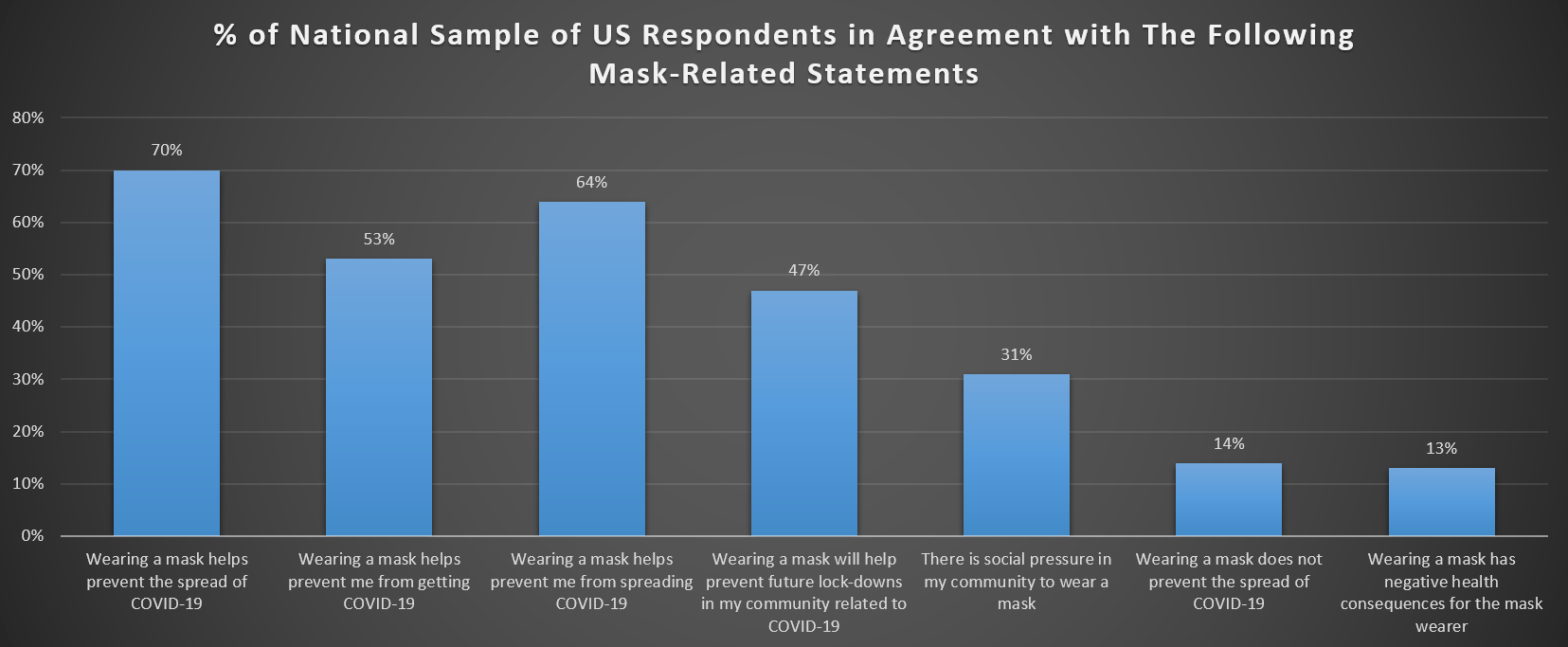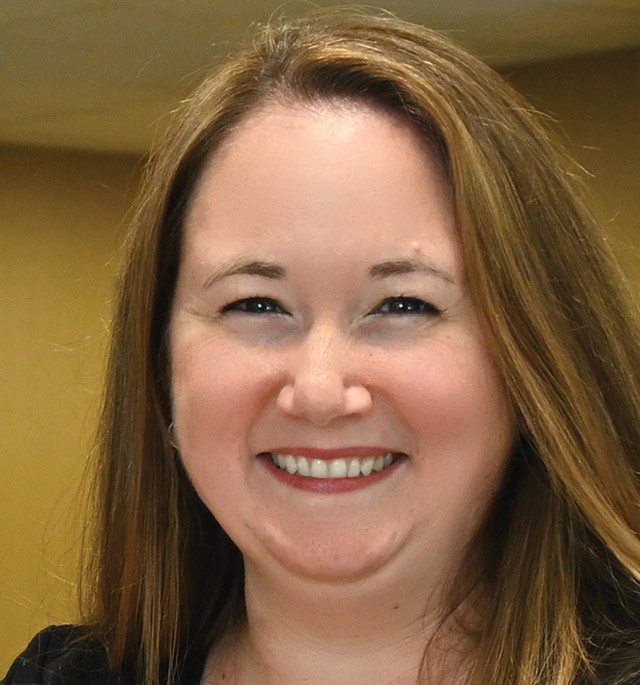COVID-19 has altered everyday lives around the globe — even if personally unaffected health-wise or economically, one cannot ignore the massive societal changes happening around them. Indeed, what began as a health event, specifically a viral pandemic, has become a health and economic crisis, shifting practices and shaping societies around the world.
Admittedly, public health messaging has been confusing. Increasingly, responses to the pandemic, including recommendation for control practices (for example, wearing facial coverings or masks), have become politicized.
What we’re doing in response: We collected data June 12–20, 2020 regarding the impacts of COVID-19 on 1,198 U.S. households as part of a study about perceptions of the virus with respect to personal values/behaviors associated with reopening. In particular, we were interested in household and personal impacts of COVID-19, perceptions of personal risks and beliefs about masks and their use/role in society in relation to viral disease spread in society in 2020. Fundamentally, we seek to understand what respondents know about the effectiveness of wearing masks in terms of disease control and whether they perceive the practice as an aid in preventing future shutdowns of their community, and thus, their local economy.
What we learned: We found that 83% (±3%) of respondents reported that they believe masks have some role in U.S. society. In order to delve deeper into understanding perceptions of masks in anticipation of (in future work) being able to test for differences in mask wearing based on their perceptions/views, we inquired about respondents’ agreement with a series of seven mask-related statements.

Interestingly, 70% of respondents correctly identified that wearing a mask helps prevent the spread of COVID-19, while 64% reported that wearing a mask prevents the wearer from spreading. Yet, only 47% of respondents thought wearing a mask would help prevent future lock-downs in their communities, indicating a potential disconnect in individual behavior and community-level outcomes. This disconnect is worthy of future investigation, although the consequences of an individual’s actions versus the collective community’s actions and community level outcomes is certainly nothing new societally.
This project is currently underway with active data analysis taking place and results being released in as timely of a manner as possible. As of today, the following additional document resulting from this project are available:
ConsumerCorner.2020.Letter.12






